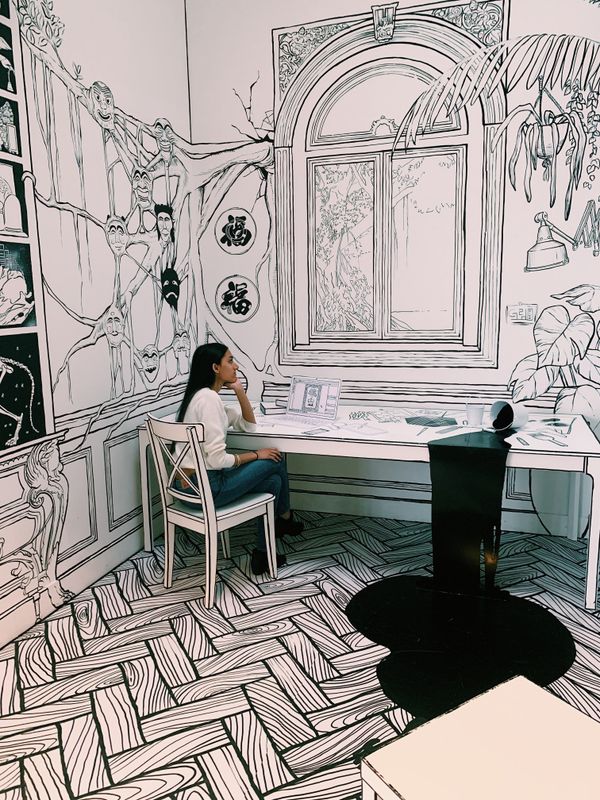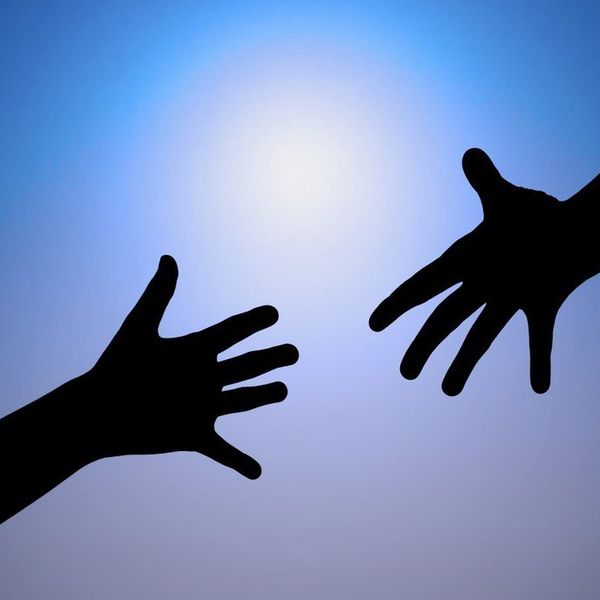I sigh as a stand up, ready to venture out into the cold and on to the next chapter of my day, rushing from appointment to appointment on the heels of behavioral health specialist in Barrow, Alaska. While I may be ready, my heart isn’t. The second I stand to make my way to the lounge, my heart starts to race. Black dots flood my vision, pushing inwards. I don’t even notice the tears that start to spill from my eyes as I sit back down on my bed and press two fingers against my carotid artery to feel my pulse coming fast and uneven. My breath is shallow.
“I’m not feeling so good,” I choke out to my roommate Veronica, who is busy studying for the DAT. “I think I need to go to the clinic.” Veronica, alarmed, rushes to get someone who can take me to ASNA, the Indian Health Service hospital in Barrow. I sit on the bed, sticky, choked sobs issuing from my throat, hating myself, hating Barrow, hating my body. The palpitations aren’t new. Neither is the dizziness, or the fainting spells, or the sudden jump in my heart rate whenever I stand up. But now, here, they feel like a betrayal.
Since I was 11, I’ve struggled with what many might think of as the quintessential white girl disease: restricting-type anorexia nervosa. In reality, anorexia nervosa is a much more complex beast. As the psychopathology with the highest mortality rate, anorexia has claimed the lives of both men and women for centuries. Remember Saint Catherine? Classic anorexic death. Anorexia isn’t about vanity, media, or socialization: it’s a deadly cocktail of biological predispositions and environmental triggers that result in an internal battle to the death. But it doesn’t feel like the serious illness that I know it is. It feels like weakness, vanity, and selfishness. How am I supposed to be a doctor if I can barely keep myself alive?
On April 20th, 2016, nearly four years since I was discharged from St. Vincent’s intensive outpatient treatment for the same disease, I was admitted to Oregon Health and Science University’s pediatric world with acute bradycardia. My resting heart rate upon admission was below forty beats per minute: too low, in other words. The span from my fingertips to my biceps was a shade of mottled purple-blue, and my feet were so icy I could barely feel them. After four years of partial recovery, I am back where I started. Shivering, weak, disoriented, and still utterly convinced that I am not skinny enough.
After nine days in the hospital, my extremities were restored to their natural state of pink and my heart dared not dip below fifty. And I’ve been trying, I really have, to keep it that way. Or at least, that’s what I tell myself. I’m trying, while I eat my three protein bars a day. I’m trying, while I do frantic jumping jacks whenever I’m alone. I’m trying, when I wrap my hands around my waist, waiting for it to be whittled enough for my fingertips and wrists to touch. And maybe it’s true, but it would take more to get me to try harder.
Maybe what it would take was this. During the drive to ASNA, I am mostly silent. I am embarrassed. There is snot streaming from my nose and my eyes are red and aching. I feel stupid, crazy. Am I scared because my heart is pounding or is my heart pounding because I’m scared? I urge my ride to leave as soon as I walk into the clinic. “I’ll be fine,” I say, trying to look okay but not so okay I shouldn’t be there, “You don’t have to wait.” I do the waiting myself: over three hours of it.
The waiting area in the hospital lobby is spacious, beautiful, and utterly impersonal. NCIS plays on the television across from my chair, and I half-watch while I curl up to maximize my body heat, two fingers on my pulse and my other hand, the nail beds turning that lovely purple-blue, balled tight into a fist. Everyone else waiting is either elderly or the hyperactive children that surround them. Everyone but me is native, overweight, and composed. I am an 110-pound mess.
When I am finally called in, the doctor wastes no time in asking me what my problem is, in so many words. His English is poor, and he struggles with asking me the appropriate questions. When I disclose that I’ve been diagnosed with anorexia nervosa, he asks if I purge: only, he doesn’t ask. He doesn’t know how. Instead, he mimes throwing up, which makes me feel like imitating him with the actual action.
After three hours, my heart has calmed down, though my brain is still reeling. My EKG is normal; my pulse is low but stable. The doctor asks what “got me started” on my anorexia. “Did your boyfriend break up with you?” I want to laugh, but I want to cry a little more. I ask if we can do orthostatic vitals. I know the drill as well as I know the alphabet. Five minutes lying down, pulse and blood pressure. Two minutes standing up, pulse and blood pressure. Instead, they take my blood pressure lying down, sitting up, and standing with no time in between. I leave dejected and humiliated.
But when I leave the hospital, I know that I will be leaving Barrow. I know that I will be back in Anchorage the next day, in the busy Providence hospital with doctors who speak my language and understand my illness, and in two weeks I will be in Portland with my doctor who cares about me and knows my case inside and out, my therapist who makes me laugh and helps me cope, my dietician with her brightly-colored office and her vegan bakery appointments, with my family who loves me. Other patients would not have those luxuries. If the doctor asked them what “got them started” with their serious mental illness, if he proposed an offensive answer before they had the chance to answer, they do not get to brush it off. They do not get to bitch to their friends, joke about it to their therapist, or thank their real doctor for not doing that.
Instead, they have to go home to their houses in Barrow, with peeling paint and maybe a half-bottle of cheap whiskey left in the cabinet. And maybe they’ll get that bottle, and bring it to their couch, and try to forget the disrespect from the hospital built to serve them. Maybe they’ll get down their hunting gun from the shelf, do what 35.1 Alaska Natives in every 100,000 do, a statistic that is still rising, and take their own life. I am sick. I am perilously sick. But I am also wonderfully, tremendously lucky.





















